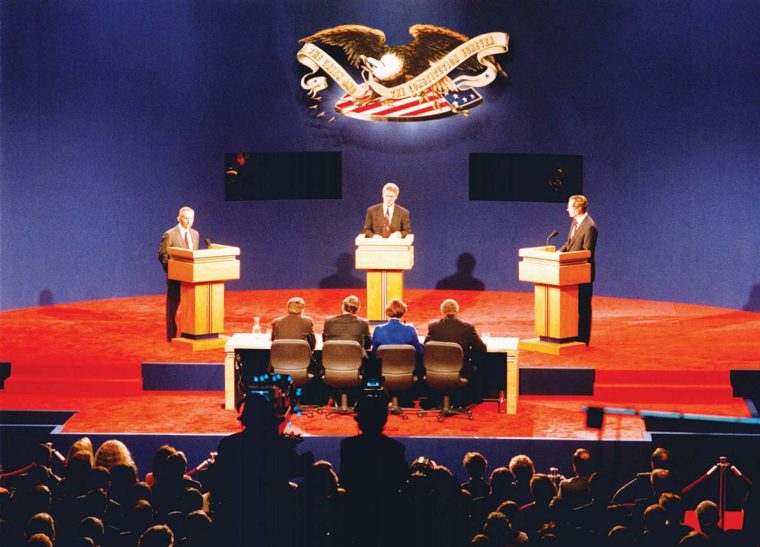
The robust discussions and debates that occur at research universities have been central to the advancement of democracy and the creation of new knowledge.
A foundational value of our great democracy is the free and open exchange of ideas. As Americans, we are free to express ourselves without fear of persecution. And our universities have a special duty to promote thoughtful discourse, as it is intrinsic to our core academic values.
In accordance with this deeply-held commitment to thought diversity and debate, many universities including Washington University in St. Louis, Case Western Reserve University, Michigan State University, and Georgia Tech have for years hosted presidential and vice-presidential debates. Though these debates are not always as civil as we may like, they are pivotal in allowing potential U.S. leaders to share ideas, challenge each other, and present their positions to the American people. After all, differing perspectives are what has made the U.S. a powerhouse of independent thought and innovation.
I mention this because lately, I have noticed a troubling decline in tolerance and an uptick in hostile and discriminatory speech and behavior. It seems that almost every month, a speaker is shouted down or disinvited, a conversation stifled. There are obligations for both speakers and audiences if the purposes of the university are to be preserved. Audiences bear the obligation to listen, even to the most offensive speech and to ask telling questions that reveal illogic or erroneous suppositions of the speaker. In turn, speakers incur the obligation to accept questions from an audience that seek even to explore weaknesses in their argument.
It is especially important during difficult times, and when dealing with divisive topics or figures that each of us extend to one another the highest levels of tolerance and mutual respect. When we fail to do so, we also fail to respect and cherish the right we have to free speech and we deepen divisions instead of moving closer to solutions.
I am certainly not alone in my thinking. The leaders of AAU universities strive each day to ensure their campuses and classrooms foster free expression of ideas. That is why in April, AAU presidents and chancellors restated the critical importance of free speech and vowed to continue supporting debate on campus.
Together, our universities will collectively resist efforts to silence those who seek to express controversial views, even if those views are considered offensive by some in the campus community. And we will continue to ensure that our students, faculty, and staff are equipped to engage in thoughtful, inclusive, and non-discriminatory speech, and understand the rights and responsibilities associated with the protection of free expression and academic freedom.
As the statement says, we truly hope our universities demonstrate how a free and democratic people should arrive at a deeper understanding of the critical issues facing our nation, and of each other. I hope the American people recommit to these principles as well and challenge the ideas – not the integrity – of those with whom they disagree.